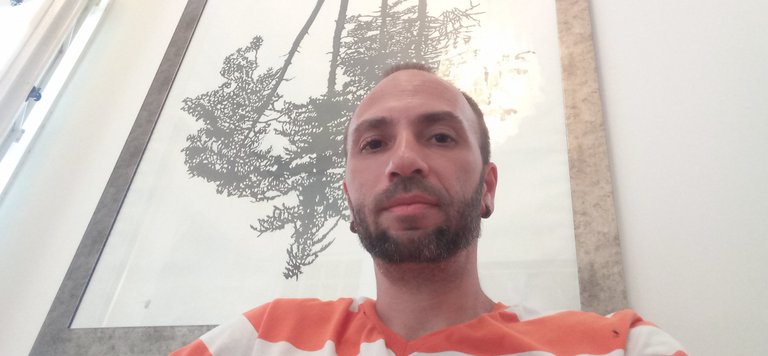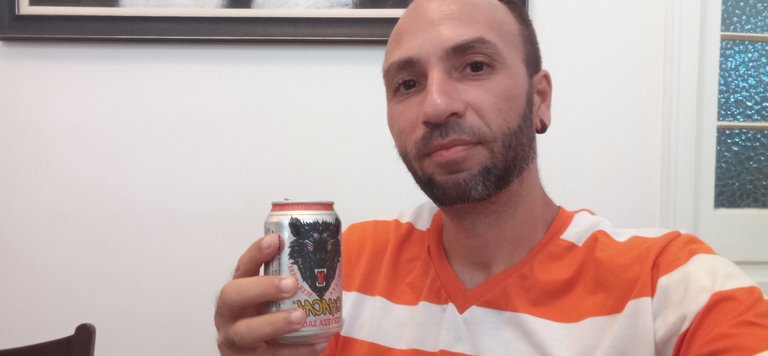Do what I say, and not what I did / Haz lo que digo y no lo que hice (eng-esp)
Hello, friends at #hive.
One very difficult thing about raising children, and something we struggle with daily, is getting them to obey us. Especially when we tell them not to do something they want to do.

We all have our share of adventures and mischief. In fact, when we look back, we may realize we've done some outrageous things and perhaps even regret some of them.
Perhaps we've even told our children about them, or they heard about them from a friend or family member. Then, they'll say, if we did it ourselves, why can't they?
It's sound logic, if you think about it.
But in this case, logic loses to experience, but it's complicated and difficult for them not to understand. Especially because we were teenagers too, and we know that when something gets into our heads, it's hard to give in.
With my stepchildren, I've had to use their intelligence. While their mother simply forbade them from certain activities, such as drinking, I didn't. On the contrary. At our parties and activities, I would offer them drinks and tell them, "If you're going to drink, do it here with us, not on the street with strangers."
And they didn't drink.

It's the law of the forbidden fruit. All decent people want what is forbidden, and therefore, in certain cases like this, I don't forbid it. But I do control it. Especially since the whole family drinks at parties. It would be very hypocritical to tell them that drinking is bad or something similar.
Their mother and I choose to show them the pros and cons of each drink and the limits of drinking. Also, when we encounter someone drunk on the street, we don't miss the opportunity to show them what would happen if they drink too much.
But drinking is easy to correct. There are things that, no matter how much we explain them, they seem unable to understand. Or worse, they understand but decide to do the opposite. And these are the actions that have repercussions in the future.
Recently, I've been talking to a student who wants to drop out of art school. Both his mother and his friends urge him to at least finish it and then, if he wants to study another degree at university, to do so, but to finish his music degree and get his degree.
I wish someone had told me that, sometime before I dropped out of accounting school in my fourth year. I would have appreciated being told what the repercussions would be on my personal and professional life.
When we're young, we're always told we have a whole life ahead of us. To a certain extent, that's true, but if we don't have a degree and if we spend that whole life correcting mistakes or suffering the consequences of past errors, it's not worth having so much time ahead of us.
That's when I approached this student and told him about my personal experience and the consequences of not finishing my degree. I told him everything that dropping out at this level could mean for his life. Above all, I made him see it in terms of years of life. All the years he would lose trying to make up for lost time.
I didn't tell him to give up; I simply gave him other strategies and made him see that the most sensible and practical thing to do was to finish his studies at art school and then transfer.

Adolescence is a stage of rebellion, impulsiveness, and, above all, characterized by a lack of thinking about the future. Quite simply, a complete lack of concern for the future.
It's said that "no one learns from someone else's mistakes," so it's up to us to think for them. We must be attentive to them, to their activities, and anticipate what they're going to do and the consequences.
My experience tells me that being upfront with them doesn't solve anything. It didn't work with me, and I doubt it would be any different with you.
We must figure out how to turn things around and have them change their minds themselves. We must be able to show them, and if possible, make them experience the consequences of their actions.
The most important thing we must do is warn them, teach them, educate them, and instruct them. This is the essence of prevention and 99% of our work as parents.
Versión en español
Hola, amigos en #hive.
Algo muy difícil en la crianza de los hijos y con lo que tenemos que luchar a diario es lograr que nos obedezcan. Sobre todo, cuando les decimos que no hagan algo que ellos quieren hacer.

Todos tenemos nuestra propia dosis de aventuras y de travesuras. De hecho cuando miramos hacia atrás quizás nos demos cuenta de que hemos hecho bastantes barbaridades y quizás hasta nos arrepintamos de algunas de ellas.
Quizás hasta se las hemos contado a nuestros hijos o se enteraron por alguna amistad o familiar. Entonces, ellos dirán que si nosotros mismos lo hemos hecho, ¿por qué ellos no pueden?
Es una buena lógica, si lo piensan.
Pero en este caso la lógica pierde ante la experiencia solo que es complicado y difícil de que no entiendan. Sobre todo por qué nosotros también fuimos adolescentes y sabemos que, cuando algo se nos mete entre ceja y ceja, es difícil que demos el brazo a torcer.
Con mis hijastros he tenido que jugarles inteligencia. Mientras que la madre sencillamente les prohibía realizar ciertas actividades, como por ejemplo beber; yo no se los prohibía. Al contrario. En nuestras fiestas y actividades les brindaba y les decía “si van a beber, háganlo aquí con nosotros y no en la calle con extraños”.
Y no bebían.

Es la ley del fruto prohibido. Todo lo decente quiere lo que se le prohíbe y por tanto yo en ciertos casos como este no se lo prohíbo. Pero se lo controlo. Sobre todo porque toda la familia bebe en los festejos. Sería muy hipócrita decirles que beber es malo o algo parecido.
Su madre y yo optamos por mostrarles los pros y contras de cada bebida y los límites al beber. También, al encontrarnos a algún borracho por la calle, no perdemos la oportunidad de mostrarles lo que pasaría si se exceden con la bebida.
Pero la bebida es fácil de corregir. Hay cosas que, por más que les expliquemos, parecen imposibilitados de entender. O peor, lo entienden pero deciden hacer lo contrario. Y estas son las acciones con repercusión en el futuro.
En estos días he estado habla con un estudiante que quiere dejar la escuela de arte. Tanto su madre como sus amigos le piden que al menos la termine y luego, si quiere estudiar otra carrera en la universidad, que lo haga, pero que termine de graduarse de música y obtenga su título.
Yo hubiera querido que alguien me hubiera dicho eso, alguna vez antes de abandonar la carrera de contabilidad en cuarto año. Hubiera agradecido que me contaran cuáles serían las repercusiones en mi vida personal y profesional.
Cuando somos jóvenes, siempre nos dicen que tenemos toda una vida por delante. Hasta cierto punto es verdad, pero si no tenemos un título y si nos pasamos toda esa vida rectificando errores o sufriendo las consecuencias de los errores pasados, no vale la pena tener tanto tiempo por delante.
Fue entonces cuándo me acerqué a este estudiante y le conté de mi experiencia personal y las consecuencias de no haber terminado mi carrera. Le dije todo lo que podría acarrear para su vida el abandonar los estudios a este nivel. Sobre todo se lo hice ver en años de vida. Todos los años que iba a perder en recuperar el tiempo.
No le dije que desistiera sencillamente le di otras estrategias y le hice ver que lo más sensato y práctico era terminar sus estudios en la escuela de arte y luego cambiarse.

La adolescencia es una etapa de rebeldía, impulsividad y, sobre todo, caracterizada por no pensar en el futuro. Sencillamente por una completa despreocupación por el futuro.
Se dice que “nadie escarmienta por cabeza ajena”, así que nos toca a nosotros pensar por ellos. Debemos estar atentos a ellos, a sus actividades y prevenir lo que van a hacer y las consecuencias.
Mi experiencia me dicta que irles de frente no soluciona nada. Conmigo no lo hacía y dudo que con ustedes fuera diferente.
Debemos ver cómo darle la vuelta y que sean ellos mismos los que cambien de opinión. Debemos ser capaces de saber mostrarles y si fuera posible, que vivan, las consecuencias de sus acciones.
Lo más importante que debemos hacer es alertarlos, enseñarlos, educarlos e instruirlos. En esto consiste lo esencial de la prevención y el 99% de nuestro trabajo como padres.
¡Cuánta sabiduría en cada letra!
Y por cierto, vi mi pelo por ahí jajaja
Ah, no estaba seguro de que fueras tú, pero sí, ya veo que lo eres jajajaja.
Ese era un ejemplo de hacer locuras. Ya más controladas, pero locuras al fin. Como asociarnos con @restaurador eso debe considerarse como todo aquello que le decimos a los niños que no se hace 🤭
Hay que decirles que no se asocien con él y que le cuiden a Abril jajaja
😅
Que buen texto. Que profundas y sabias tus palabras. 😘👏
Gracias, mi bella